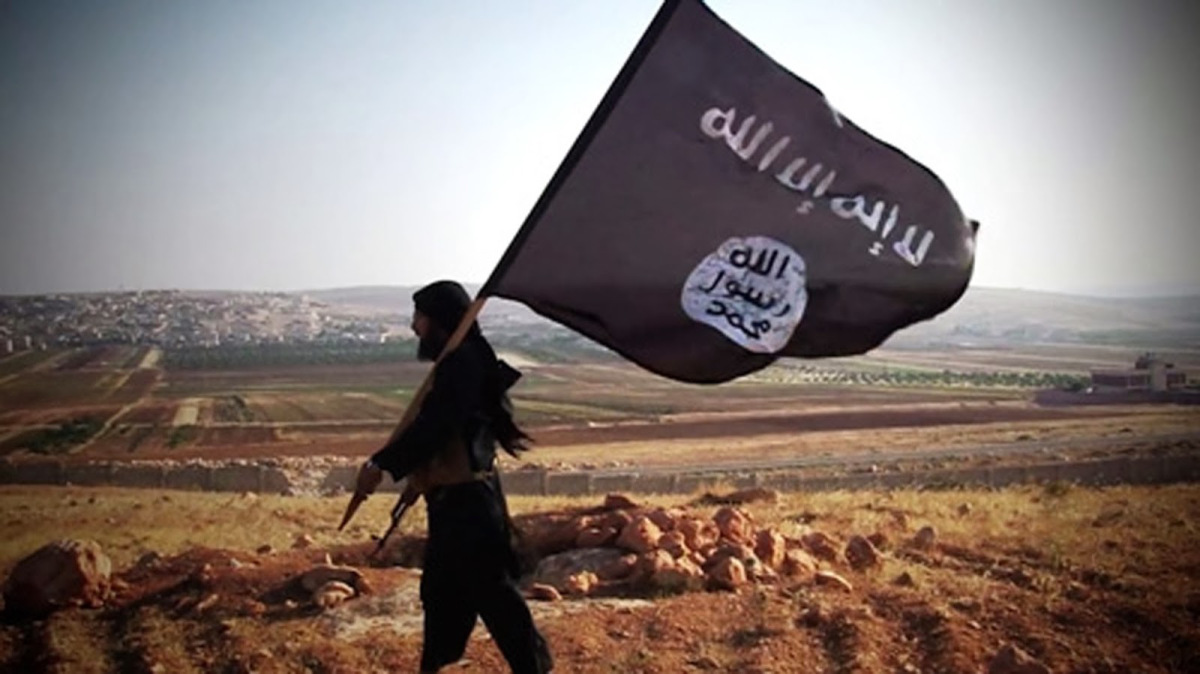The notorious Islamic State of Iraq and Syria (ISIS), known as Daesh terrorist group is on decline in Middle East, and Afghanistan, but its influence in Pakistan has been rising day to day. The secret, and terrorist activities of ISIS has been reported in the Punjab, Sindh, Khyber Pakhtunkhwa and Baluchistan provinces, including the FATA, and even the capital, Islamabad. On September 24, the Express Tribune and other newspapers reported the Islamic State flags were waving in Islamabad that read “Khilafat is coming.” According to reports, the group is constantly recruiting educated, and illiterate people in Pakistan, and sent them to Iraq, Syria, and Afghanistan. A number of Pakistan-based terrorist organizations have been unified under the shelter of Daesh terrorist group. Responsibility for a number of terrorist attacks in Pakistan, having sectarian motivations has been claimed by the said group. The Pakistan’s Intelligence Bureau (IB) chief has earlier said that terrorist organizations like Lashkar-i-Jhangvi, and Sipah-i-Sahaba have soft corner for the Islamic State and have been involved in recruitment for the group. The Pakistani Taliban (TTP) has also assured its full support to Daesh. In 2015, TTP’s Orakzai branch chief, Hafiz Saeed Khan was appointed as the head of ISIS for Khorasan chapter to operate in Afghanistan, and Pakistan. Hafiz Saeed Khan was killed in a US drone strike in eastern Nangarhar province near Duran Line in August 2016. The ISIS presence in Pakistan was surfaced in late 2014, when women and girls from Jamia Hafsa—a religious madrassa closed to Lal Masjid in the heart of Islamabad—conveying a message to Abu Bakr al-Baghdadi, and addressed him, “the caliph” and “our brothers, the mujahideen.” “We pray for you people every day and night here in Pakistan,” a woman, standing in a black Burga against the backdrop of Deash flag said this in Arabic. This video message ended with this formal statement: “Oh Allah, establish the Islamic Caliphate regime in Pakistan.” Before Jamia Hafsa invitation to caliphate, the ISIS was already nurtured there as the group distributed pro-Islamic State pamphlets in Peshawar, and FATA region. Commenting on ISIS presence in Pakistan, the Muttahida Qaumi Movement Chief, Altaf Hussain, said: “From Sadiqabad—a sub division of Rahim Yar Khan district in Punjab province to Islamabad, flags of ISIS were waving here and there.” Enforced by the public criticism, the Pakistan’ law enforcement agencies arrested a number of Deash militants, putting up ISIS flags, and posters in Lahore, and vicinity of Islamabad. Noreen Leghari, a 20-year-old medical student was also arrested from Lahore, and one of her two accomplices was killed. Women and educated youth from liberal families in Pakistan have been emotional to the lure of Daesh’s brand of terrorism. A report issued last year by the Royal United Services Institute, a London-based defense think tank, estimated the Daesh had been recruited 2,000 to 3,000 militants in Pakistan. By aiding and fueling ISIS led insurgency, and labeling it as an American project, Pakistan wants to spread fear among the regional countries to pay way for a regional alliance in order to undermine war on terror in Afghanistan. The increased number of Pak-based terrorist outfits and ISIS emergence in the country, has posed a serious threat to regional peace, security, and nuclear weapons of Pakistan which needs a counter narrative, and comprehensive strategy to get rid of this menace. The International Community have to take immediate step to secure nuclear weapons of Pakistan in order not to fall to the militants hand. If reluctant made, not only Pakistan, and Afghanistan, but the entire world would be in deep jeopardize. It is the responsibility of the UN Security Council to go after Pakistan and dismantle its nuclear assets for the sake of peace and stability in the globe.

 Afghanistan Times
Afghanistan Times



